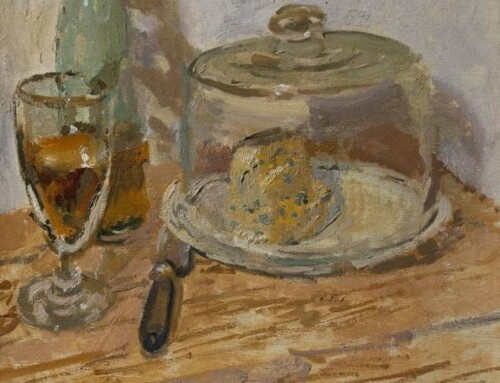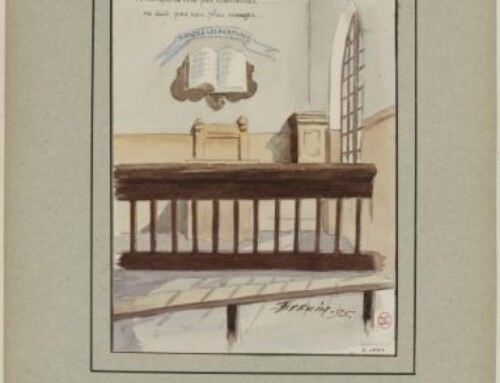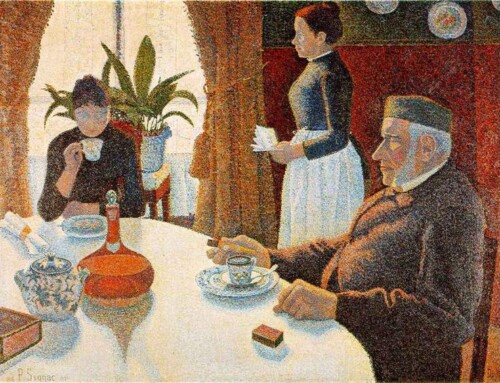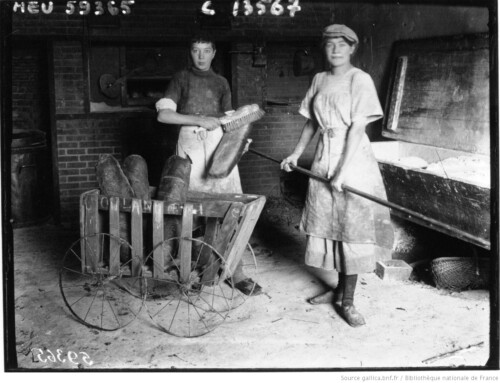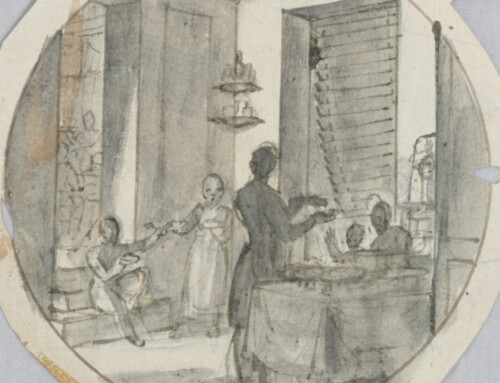Charlotte Bourette (1714-1784), whose sobriquet was La Muse Limonadière, ran Le Café Allemand (rue Croix-des-Petits-Champs, Paris) which was frequented by hommes de lettres. Her verse and prose were gathered for publication in 1755, and her comedy La Coquette punie was published in 1779. She also corresponded with well-known writers. When Voltaire (1694-1778) gifted her a porcelain cup, she wrote a poem in return:
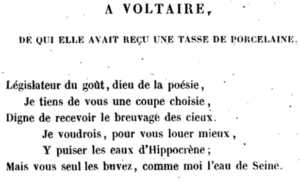
Page 251. Chefs-d’oeuvre poétiques des dames françaises depuis le treizième siècle jusqu’au dix-neuvième. France, Paulin, 1841.
It was only at the end of the seventeenth century that France began to have some success producing porcelain: there was the Louis Poterat factory in Rouen (operating from c. 1690 to 1696) and the Saint-Cloud factory (operating from the mid-1690s to 1766). The first half of eighteenth-century France saw the Antoine Pavie factory (c. 1703 to c. 1727), the Chantilly factory (1730-92), the Villeroy factory (c.1734/37-48), and the Vincennes factory (1740-56). A porcelain cup was arguably a pretty nice possession at the time in France. The one that Voltaire gave Charlotte Bourette was described by Jean-Jacques Rousseau (1712-1778) as “dorée.” The following are a few examples of porcelain cups with gold decoration from that period in France.
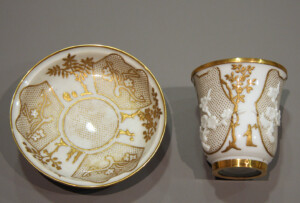
Cup (beaker) made of porcelain decorated in piquée d’or and with gold mounts. Made in Dehua, China, then decorated in Paris, France. 1700-1722. The British Museum. Creative Commons Attribution-NonCommercial-ShareAlike 4.0 International (CC BY-NC-SA 4.0) license. → https://www.britishmuseum.org/collection/object/A_1931-0513-1-a
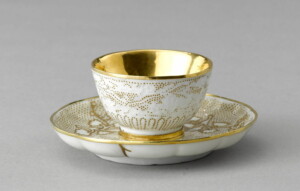
Tasse. Circa 1717-1722. Paris, France. Musée du Louvre, OA 12237 4 – https://collections.louvre.fr/ark:/53355/cl010114127 – https://collections.louvre.fr/CGU
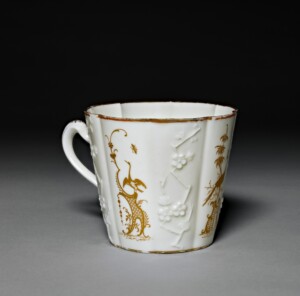
Cup. Circa 1750. Vincennes Porcelain Factory. The Cleveland Museum of Art. → https://www.clevelandart.org/art/1953.276.a
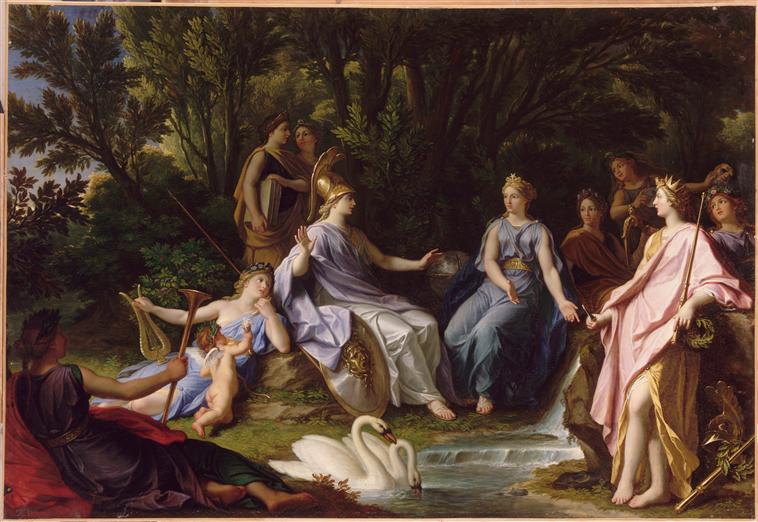
René Antoine Houasse (1645-1710). Minerve sur le Parnasse (« Les Muses montrant à Minerve les eaux du fleuve Hippocrène que Pégase à fait jaillir sur le mont Hélicon »). 1689-1706. Musée national des châteaux de Versailles et de Trianon. → https://www.pop.culture.gouv.fr/notice/joconde/000PE008941
▀▄▀▄▀▄
References & Suggested Reading
Bourette, Charlotte. La Coquette punie : comédie en un acte et en vers. Paris: J. Fr. Bastien, 1779.
– – – . La Muse limonadière, ou recueil d’ouvrages en vers et en prose, par Madame Bourette, cy-devant Madame Curé, avec les différentes pièces qui lui ont été adressées. France, Jorry, 1755.
« BOURETTE, (CHARLOTTE RENYER, d’abord Dame CURÉ, et ensuite Dame) dite la Muse Limonadière. » Dictionnaire historique, littéraire et bibliographique des Françaises et des étrangères naturalisées en France, connues par leurs écrits, ou par la protection qu’elles ont accordée aux Gens de Lettres, depuis l’établissement de la Monarchie jusqu’à nos jours ; par Mme Fortunée B. Briquet. France, L’imprimerie de Gillé, 1804.
“BOURETTE, (CHARLOTTE – RENYER, femme CURÉ, puis femme).” Biographie universelle ancienne et moderne : ou histoire, par ordre alphabétique, de la vie publique et privée de tous les hommes qui se sont fait remarquer par leurs écrits, leurs actions, leurs talents, leurs vertus ou leurs crimes. Bon – Bru. Germany, Desplaces, 1843.
Chefs-d’oeuvre poétiques des dames françaises depuis le treizième siècle jusqu’au dix-neuvième. France, Paulin, 1841.
Desnoiresterres, Gustave Le Brisoys. Voltaire et la société au XVIIIe siècle : Voltaire et J.-J. Rousseau. Deuxième édition. France, Didier et cie., 1875.
Spary, Emma C. Eating the Enlightenment: Food and the Sciences in Paris, 1670-1760. United Kingdom, University of Chicago Press, 2013. https://www.google.com/books/edition/Eating_the_Enlightenment/5pCbLoZ546cC?hl=en&gbpv=1&dq=bourette%20cafe%20allemand%20Croix-des-Petits-Champs&pg=PA135&printsec=frontcover&bsq=bourette%2C%20caf%C3%A9%20allemand%2C%20Croix-des-Petits-Champs
